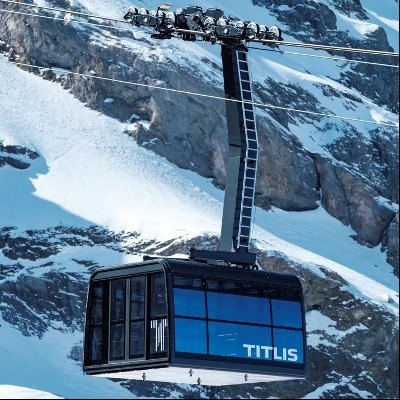Heiligenblut: Owners To Continue To Operate Troubled Grossglockner Bergbahnen Independently

Potential new investors were not willing to talk.
The investor group's lawyer, Dr. Ferdinand Lanker's known procedure for selling on March 21, 2024 could of course not be accepted by the owners of the Großglockner mountain railways.
The owners state once again: "Without direct and personal discussions with possible new investors and without knowing the general conditions for the sale, the references and the plans of new investors, we will not sell the mountain railways to anyone.
Decisions for 2024 and the next few years must be made now to secure jobs and tourism
However, due to operational processes in preparation for the summer and the next winter season, the necessary decisions must be made and implemented now. This was always openly communicated and always clear to everyone involved in the community of Heilgenblut and the state of Carinthia, as well as to potential investors.
Above all, it is now about securing the jobs of our employees. The registration of terminations from December, which is legally necessary, with the AMS can and will now be withdrawn."
Independent continued operation possible through cost and system reduction
As is already known, the owners have already developed an alternative scenario for this case that has now occurred and will now continue to operate the Großglockner mountain railways independently in a way that is economically justifiable for the benefit of the entire region.
The aim is to secure the operation of the mountain railways for the locals and employees as well as to secure winter tourism in the region in the long term in an economically justifiable form.
In order to secure the ski area sustainably, the owners believe that the number of facilities and thus the costs must also be reduced. In recent years the annual loss has been between 0.5 and 1 million euros. In the event of an independent continuation, the specific measures would first have to be examined; in any case, from a financial perspective, the industrious railways are affected by this.
From the owners' perspective, only by reducing the effort and costs by closing parts of the system can the mountain railways and winter tourism in the region be secured in the long term.
The official overnight stay figures from the tourism association dramatically illustrate the problem facing the mountain railways and the entire region and are the reason for these unfortunately necessary measures.
Over the last 15 years, due to a lack of initiatives in Heiligenblut and therefore a lack of suitable accommodation providers, overnight stays have fallen by 40%. Of course, these guests are also missing - in an almost identical percentage - in the ski area, which is why unfortunately adjustments are needed here too.
"In addition, in the area of advertising and marketing, there has been a lot of focus on the topic of the national park region and, in our opinion, this has not been combined sufficiently with the attractive mountain railway and ski offerings."
But only if there are enough accommodation providers and therefore holiday guests in the valley in winter can the mountain railways act in an economically justifiable manner so that jobs and operations and thus winter tourism can be maintained in the region.
Now look ahead and cooperate in and for the region
This is what the owners of the Großglockner mountain railways are particularly concerned about now: after dispensable and ineffective public discussions, it is now important to look forward again and to actively resume cooperation in the interests of the community and region with all those involved.
The first goal for winter and summer tourism must be to offer sufficient and modern accommodation facilities. Only in this way - and all experts and those responsible agree on this - will guests increasingly visit the diverse region and what it has to offer around the Großglockner and in the Mölltal.













